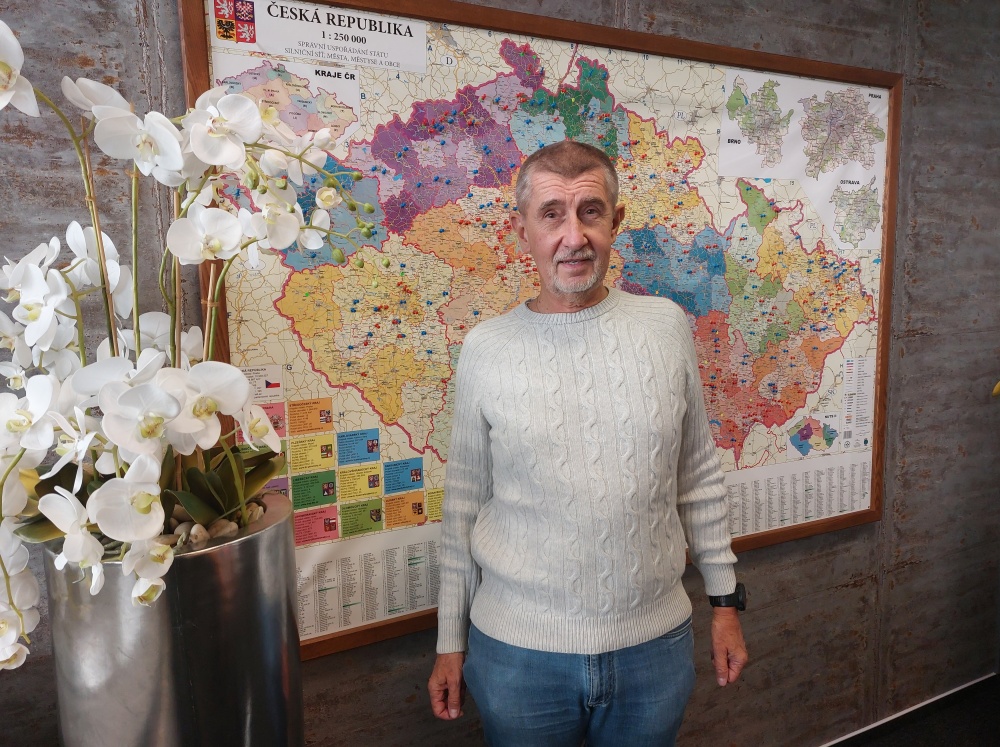
The former Czech Prime Minister believes the importance of the Visegrad 4 is on the rise again. Continue reading
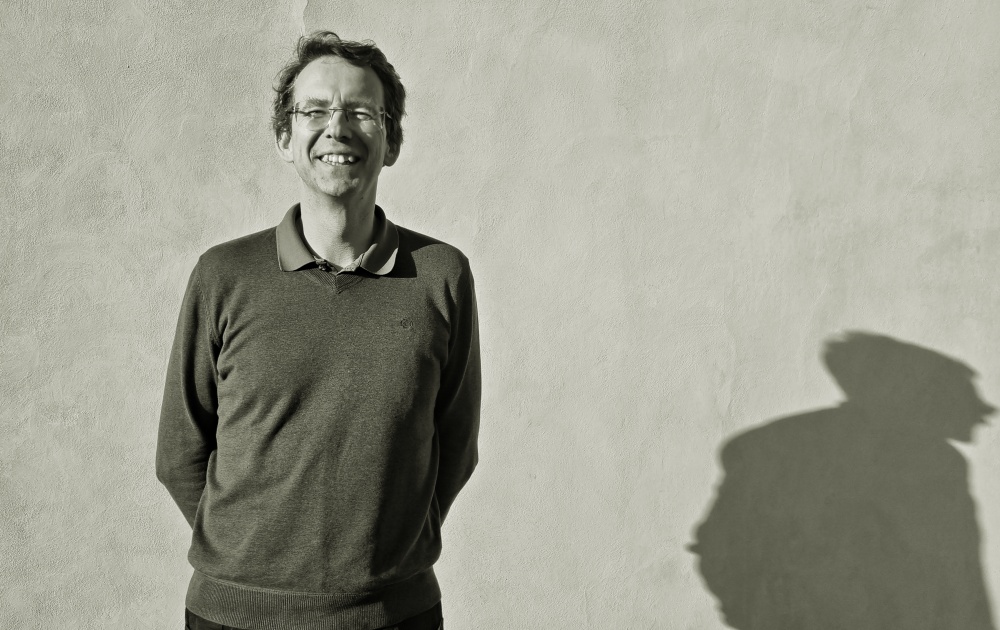
Professor Petr Drulák is a Czech scholar, diplomat, and activist, Professor of the Department of Political and International Relations at the University of West Bohemia, and founding President of the Czech Svatopluk Association. He was Ambassador to France and Deputy Foreign Minister of the Czech Republic. We met in Prague to discuss the future of Central Europe in relation to issues such as the German-dominated EU, migration, and the Visegrad 4 Alliance.
Dániel Deme: Could you tell us about your professional profile, about your focus as a political scientist?
Petr Drulák: In the past I have predominantly focused on international relations. Today I am mostly interested in the fate of Central Europe, and the fate of the West. The social model that we have shaped in the past 30 years is hitting a dead end, and the intelligentsia’s task is to come up with possible alternatives in order to create a meaningful vision for our future.
DD: This is of course a fairly wide scope but there are many of us who have set Central Europe in to the heart of their professional focus, and we are trying to define it anew again and again. The definition is not an impossible task in itself, there are plenty of alternative options to approach this question on the historic or philosophical plane that are valid in their own right. But today we need to come up with one that resonates, one that is not an abstract thought-exercise, but a definition that speaks to people and is able to unite them. Citizens need to be able to rally behind this concept, mobilize as Central Europeans against the cultural nihilism that is currently undermining the concept of Central Europe. These new ideologies are trying to redefine Europe, including Central Europe. If we change the meaning of key concepts, we invariably change the morals of a society too.
Today, there are attempts to redefine Central Europe as an archaic, anachronistic utopia, which does not hold any legitimacy. It is only discussed as part of our past historic development, but one that we should not cling to any longer.
PD: The topic of Central Europe is receiving its actuality from the current crisis of the West.
When we turned towards the West some 30 years ago, we imagined it as a space of values, ones that were trampled on by the communists. We have imagined it as a place with security guarantees and that of prosperity.
We have imagined that the West can offer us all these things. Today, however, we see that the West is in a state when it cannot guarantee either of these. And it is not only that the West cannot guarantee them, it seems to actively question them.
In terms of our security, look at the migrant crisis that is, to a large extent, generated by the politics of the European Union. These are all undermining our security. As far as our prosperity is concerned, due to an uncritical liberalization in the 90s, we have assumed a role of second-rate economies, suppliers of suppliers. This is not a road to prosperity for Central Europe. Then, of course, there is the question of values. A lot of things that are today regarded as values in the West, in our region we do not accept as values. We do not accept a certain inflation of genders as a value for instance, nor do we view the green transition as such.
In other words, what we have expected of the West in the beginning of the 90s, has been turned on its head. This is why we have to look for alternatives. The West is falling apart. This does not imply that we should turn towards the East, as some of our critics are trying to describe our efforts. What we have to find is a sovereign solution.
However, Czechs and Hungarians are small nations, we will not be able to play a global role if each of us stands alone. Yet if we find a way to work together closely, then there really is a community that has the potential to guarantee the above three things: security, prosperity, and values that are ours, that stem from our traditions.
This is, shall we say, the strongest argument for a Central Europe: we have basically no other option but to adopt it. There is a West that is descending somewhere where we do not want to be. Then there is an East, but we do not want to be part of that either.
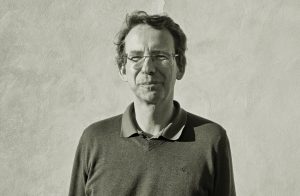
Prof . Petr Drulák. Photo: Hungary Today
DD: Sure, but for the West we have always been “East.” If you ask most people in Germany or in Anglo-Saxon countries, then they will describe our region as “Eastern Europe.” They do not understand the concept of Central Europe, it does not exist for them, save for some well-informed academics. In Hungary the concept was defined, among others, by the historian István Bibó (1911-79) between the two world wars, then there was a lull during the times of communism when this was not an accepted term, because it was a counter-pole against the Soviet interpretation of spheres of influence and history. In a way, it seems to be playing a similar role against an American dominated historical paradigm too. But the creation of the Visegrad 4 alliance (Czechia, Slovakia, Hungary, Poland) had somehow resurrected the concept and injected it with a new purpose.
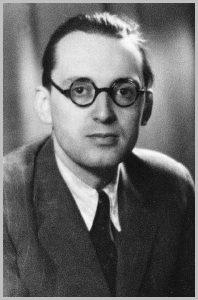
István Bibó. Photo: Wikipedia
Some accuse Hungarian Prime Minister Viktor Orbán of militarizing the V4 and the concept of Central Europe for a struggle against illegal migration and against Western progressive ideologies. They say Orbán sees Central Europe as a bastion creating a space which resists assimilation to current Western values, and in which we can preserve our own way of life. Even if this is so, the question is whether this is a valid approach to Central Europe and a direction we should pursue.
PD: If we are talking about Orbán, my impression is that in many of his decisions his hand was forced by circumstances. When he returned to government in 2010, the country was in economic turmoil. He immediately set out to create economic sovereignty. Under his governance the state or the private sector took over the control over the economy that was, up to that point, trans-nationalized and was not serving Hungarian interests. He had put Hungarian interest on the top of his economic policy. This was something that did not go down well with Western powers, and resulted in negative headlines in the Western media.
The second such moment was the migrant crisis of 2015. During this, Orbán said that we are not ready to accept migrants because this would be a threat to Hungary, before then proceeding to build a fence. Hence Orbán’s politics is a reaction to how the rest of Europe treats the Central European region.
We have a similar trajectory with our former prime minister and President Václav Klaus. In the 90s, he also claimed that the Czechs must head to the West, towards Europe. But when in the 90s he understood what this would mean, an existence in the European second-tier, he started to have reservations. And when he became president (2003), he had assumed a clear sovereigntist position.
Thus, there are parallels between Orbán and Klaus because they have both embraced the West in the 90s, but the expectations were very different then as compared to what Western Europe is today.
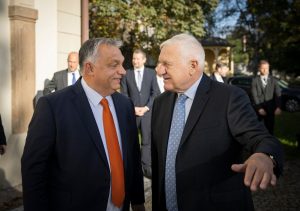
Viktor Orbán (L) with Václav Klaus. Photo: MTI/Miniszterelnöki Sajtóiroda/Fischer Zoltán
As far as the concept of Central Europe is concerned, if it was merely an artificial concept, it would be insufficient. There is indeed something like a Central European mentality. To an extent it is a heritage of the Austro-Hungarian Empire, or the Habsburg Monarchy. It is the heritage of the rule of law, of an effective bureaucratic system, but also that of traditions. Nations who were part of this still carry these features.
But Central Europe is not simply a bearer of this Austrian heritage. We also have to think in geopolitical terms. We have three important power centers in the region: the Prussio-German center (Berlin), Russia, and in the south, the Turks. Central Europe is simply the space between these powers. Nations that want to achieve their independence from these imperia and want to go their own way, are the nations that belong to Central Europe. They have proved their independence and viability outside the large powers. Hence this goes well beyond the Visegrad 4 countries, and reaches as far as the Balkans.
DD: The former Hungarian Minister of Foreign Affairs, János Martonyi, has recently published a book entitled “Nation and Europe”. The title perfectly describes our current state in the EU, when the two concepts of nation and Europe run parallel side by side. When after the fall of the Iron Curtain, and we joined Europe in the 90s, it still was a “Europe of Nations.” Today we have gotten to a stage when a federalist view of the European Union coexists with a national sovereigntist one, that is, “nation and Europe.” But we are rapidly descending into a “Nation or Europe” kind of state, when the two are becoming competing terms. How did we get to this situation?
PD: The concept of Europe that is accepted here in Central Europe, is built on nation-states. Europe cannot be in a conflict with nations.
Europe is formed in the polyphony of nations. This means that despite our diversity that we want to preserve, if we try hard, we are able to create something higher in the resulting consonance. This is the original idea of Europe.
Those who have created the EU in the 50s, Konrad Adenauer of Germany, Alcide De Gasperi of Italy, and Robert Schuman of France, did not dream about a Europe that could replace nation-states. On the contrary, Europe was here to make nations stronger and better able to function. The democratically elected leaders of Europe had always clung to building a consensus between European nations. However, as time went on, transnational voices started to be heard, especially around institutions such as the European Commission and the European Court of Justice. Inside the Brussels power structures, a new alternative concept of Europe is being formed that is meant to erase nations, and replace them not even with a “European nation,” but with a European “space.” This is meant to be held together by some rules, and be sterilized of cultural features.
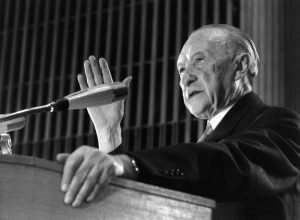
Konrad Adenauer in 1966. Photo: Wikipedia
This ideology has infected a number of great European nations. The ideology, to a large extent, originates from Germany. We have to understand the German tragedy here. Germany was one of the great nations of Europe that was able to define what Europe is. Yet in the 30s, Germany got into terrible spasms, which led to a tragedy. This is how Germany dragged us all into an unimaginable tragedy. The crimes committed during this period are perhaps the worst such things in European history. This is particularly so, because these crimes have been committed overwhelmingly by the most developed nation in Europe.
This was the moment that had initiated a counter-movement in Germany, in which Germans now seem to define themselves based on the denial of nationhood. This masochistic, schizophrenic definition of nationhood is not viable, but has still been carried into the center of the new European identity.
DD: There are opinions that identify American universities as the source of these anti-nationhood ideologies. It is another matter that these theories have received an enthusiastic welcome at German academic circles, German churches, and the Bundestag. Unfortunately though, it appears that Germany is returning to a tragic path that in the first half of the 20th century destroyed Europe with militarism, in the 30s, continued in doing so with national-socialism, and is now trying to destroy Europe with a progressive multiculturalism and migration. Certain German elites seem to have now developed an approach to the deconstruction of Europe to perfection, from where there is truly no way back. What in your view is the lesson we should take from the first two instances that we could employ now in resisting yet another endangerment of the European peace by a German-dominated European political fundamentalism, or shall we call it a “supranational-socialism,” that first of all destroys its own people, but eventually wants to drag the entire European community down into the abyss?
PD: This is a kind of Teutonic grit. They are a nation of philosophers, they have an inclination to great ideas. Once they identify with a great idea and accept it wholly as their own, they are willing to sacrifice themselves in the name of this idea, and everyone else around them.
In the 30s, it was the idea of a superior German nation or race, but today these are ideas related to the green transition, migration, and other progressivist issues. The Germans have adopted these ideas as their own, and they are defending them with great aggression everywhere. If they simply clung to an idea and wanted to live by it, this would not have to concern us much. But they feel obliged to export these ideas, try to convince everyone else, and those who disagree will be compelled to budge with a variety of methods.
Today the tool used to subjugate those resisting these ideas is not a military force, but Brussels.
Yet this is Berlin’s problem as well. The fact that Germans have rid themselves of their national identity means that merging with Brussels comes all the easier than for instance in the case of France, where the idea of nationhood is still strong.
So Germany is strongly tied to Brussels in a way that no other European country is. With their intolerance springing from their conviction that they are defending the true ideals, Berlin is using the European Union’s institutions as a tool to force other nations to submit to the same ideals.
DD: In the first two historical instances, Europe was able to identify the danger. Sooner or later they understood that this is something that must be resisted and they did resist it eventually. Today Europe had bowed to these efforts instead of fighting them. This could be explained, to a large extent, with the existence of another force, the Democrat-led United States, which puts a parallel pressure on EU Member States. The danger now stands on two powerful legs. What is happening currently in Europe cannot be fully explained with German politics. Why is Europe paralyzed today, unable to resist this danger, to formulate a counter-argument and show that if we continue in this direction Europe will perish?
PD: Even in the 30s, Germany had enough sympathizers. Some supported Hitler because he was against communism, some simply admired Germany’s strength. It was not that European countries had looked at Hitler and were able to identify him as evil straight away. Look at countries around Germany, such as Belgium, Denmark, or Poland… Poland had tried to make an agreement with Hitler until the last moment. When Germany attacks its neighbors, sympathies of course end at once. Yet Europe did not always have a clear foresight in these matters.
DD: These are strong words, but Germany today does not use its own citizens to invade other people’s homelands, but citizens of third countries. Yet the effects are similar: a radical transformation of societies and the endangerment of the most fundamental cultural and political norms of the affected societies.
PD: I agree, but this is tied with the politics of anti-nationalism. If you reject the idea of nationhood, then the idea of borders loses its meaning. The idea that your citizens have some extra rights that are reserved for them specifically, and not for people of other countries, loses its grounding. They have come up with a universalistic understanding of society, which prevents them from protecting their own borders. But this concept is tied with a global ideology, which is currently dominant in the U.S.
If we are talking about the Americans, let us not forget the influence of the Frankfurt School (Max Horkheimer, Theodor Adorno, Leo Löwenthal, Jürgen Habermas, Ernst Bloch, etc.). The so-called critical theories of the school originated from these philosophers fleeing Germany and ending up in U.S. universities. Yet it is true that without the power of the American universities their influence would not have been as significant.
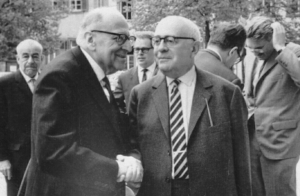
Max Horkheimer (L), Theodor Adorno front right (R), and Jürgen Habermas (background R), Siegfried Landshut (background L). Photo: Wikipedia
Still, let us look for the explanation in our own backyard.
The fact that we are unable to protect our own borders is not the result of some American pressure. This is something that Europeans did to themselves and therefore the solution must also lie in Europe.
DD: How do communities, nations lose their basic survival instincts? Here we are not merely talking about politics. The consequences of mass migration are so evident now, terrorist incidents, organized crime, religious fundamentalism, parallel societies, stratospheric levels of sexual violence, and so on.
To understand what is happening on our continent we really need to make a clear distinction between mass migration and population replacement. In the first instance we are talking about a spontaneous movement of masses of people who are fleeing disaster, poverty, conflict, moving towards more peaceful and prosperous parts of the world. This is essentially a process driven by individual and group survival instincts. That we have entered the second stage, population replacement, we can detect with a good amount of certainty when someone tries to stop us talking about the masses of illegal arrivals in our communities.
While in the first situation there is an element of spontaneity, in the second, the movement of masses is organized, and certain communities, parts of the world, are targeted with ideological or political aims. Here, the target communities are silenced, dissent is not tolerated, people who speak up lose their jobs, are socially and professionally ostracized, political movements that would build up resistance against the mass invasion are branded and persecuted. That is precisely what we are experiencing in Western Europe today. We are made to believe that these are far-right conspiracy theories, but for instance, 67 percent of French believe that they are being replaced in their own country.
PD: I am not sure if this is a replacement of populations, but the ideological axioms that guide the European elites today lead to such a process. In France, for instance, Jean-Luc Mélenchon (La France Insoumise) spoke about his goal to “creolize” France. For him this is an attractive vision of future France. The question is, whether there is a plan behind this, or simply this has an ideological background that he happens to identify with.

Jean-Luc Mélenchon Photo: Facebook
I do not know whether there is such a plan, I rather think that the ideology forces politicians to go in this direction. Then some conclude that the consequences of this process are positive, such as Mélenchon, others think that it is not ideal, but still inevitable.
DD: But there is such a plan, it is called the European migration pact…
PD: The problem with that is that Europe is caught in its own concept of the rule of law. In reaction to the previous totalitarian regimes, Europe had started to put enormous emphasis on the protection of minorities. This has unfortunately been exploited by the proponents of migration, who point at migrant communities and demand the same rights for them that the indigenous population has. This then ends up with extra rights for minorities, including migrants. European legal structures basically make it impossible to fight against migration.
Even if we had a Western politician such as Orbán, who would try to deport migrants, courts would immediately stop him from doing so. If he persisted, he would end up in court. Just look at Italy’s Matteo Salvini.
This is the magic of politics. You always have unintended consequences. Today we have a European rule of law, which is employed against the interest of the majority, which protects migrants more than indigenous citizens. And there is nothing one can do to change this.
Hence if we want to protect Europe, we will have to redefine what the rule of law means.
DD: Of course, there is a spontaneous part to the migration phenomenon, but it is hard to deny that there are interests behind the mass arrivals of people from the third-world. There are corporate interests, ideological ones, but there is something more disturbing as well. Something that goes head on against survival instincts, cannot be called politics, nor ideology or philosophy. And yet finances are pouring into Europe, mostly from the U.S., that are accelerating this process, for instance through electoral interference benefiting pro-migration political forces.
To bring up specific examples, a shady American lobby group called Action for Democracy had donated millions of dollars to the election campaign of the Hungarian left-wing coalition and are sponsoring pro-migration NGOs, as well as media outlets. In Slovakia, before the September parliamentary election, the U.S. ambassador had bragged about donating five million dollars to combat what he called “pro-Russian propaganda,” which in reality everyone understands as referring to silencing national-conservative voices. Therefore, I do not entirely agree with you that what we are experiencing is simply a social phenomenon and that there is no plan behind the radical transformation of European societies via mass-migration.
PD: Of course, there is no doubt that in our region the Americans are interfering in the matters of countries that go against their interests. Yet migration itself I would still explain in economic and sociological terms. As countries in the Middle-East and Africa are getting richer, a middle-class is forming that has higher aspirations and the means to pay people smugglers to achieve this. If these countries had stayed completely impoverished, which I do not wish, there would not be migration. That is a supply side of migration. If you mix this with the corporate interests that say that we need a migrant work-force, plus you add the progressive left calling for a multicultural society, then these are the phenomena that create a European demand for migration. You do not need a plan for this.
The fact that George Soros financially supports some of this is a drop in the ocean. I am way more worried about some German foundations and the role of the German Lutheran Church that are financing the boats bringing these people to our shores. They openly coordinate their work with people smugglers. This is a much bigger problem than Soros’ financing.
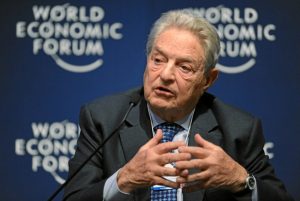
George Soros. Photo: Michael Wuertenberg. Wikipedia
DD: This “drop in the ocean” is worth some 35 billion dollars, which is what George Soros is thought to have spent on his open society, open borders causes in the past decades. This amount of money is all the more effective as there are no counter-sources that could compete with this money destined to realize his vision of a post-national Europe and U.S. There is no one who would come even close in donating to groups on the other side of the political spectrum. If you take a look at who is attacking Hungarian, Czech, Polish conservativism, who is undermining legislation and traditions protecting family values, if you wind their financing back, in most cases you will arrive at George Soros’ foundations.
As tragic as it is, even the war in Ukraine is being utilized in the fight against conservative voices. The example of the said American ambassador in Slovakia demonstrates that millions of dollars flow into Central Europe under the banner of suppressing alleged Russian propaganda, and the first things to fall are always conservative news portals, Facebook accounts not in line with the mainstream woke narrative, etc.
PD: Certainly, America does play this role. On the other hand, when a society is strong, has a government that knows what they want, then they can hold on to power. Viktor Orbán, despite all these pressures, was able to defend his position, and this is a source of optimism for us. The role of the U.S. is a bit unfortunate, and I do not think that President Trump was able to make a significant difference in all this. He was in the White House, but the mechanisms of the deep state functioned uninterrupted.
But to sum it up,
in Europe, if we make an effort, we can protect ourselves from these influences. If Hungary can do this, other countries should be able to succeed too.
Featured Photo: Hungary Today